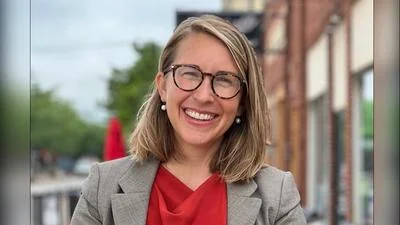City of Grand Rapids issued the following announcement on Mar 2.
The City of Grand Rapids’ Office of Oversight and Public Accountability (OPA) and its community partners will host a Clean Slate GR Expungement Fair Saturday, April 2. The event at the Center for Community Transformation, 1530 Madison Ave. SE, Grand Rapids, MI 49507 welcomes guests interested in learning more about the State of Michigan’s new Clean Slate process from 8:30 a.m. to 4 p.m.
For those who wish to attend this event, preregistration is required. Registration is now open through March 28 at the City’s “Clean Slate” website. The site contains information on event expectations, expungement eligibility, benefits of attending, a participant registration form and a volunteer sign-up form.
The Expungement Fair is co-sponsored by the City of Grand Rapids, Cascade Engineering, Center for Community Transformation, Cure Violence, Floyd Skinner Bar Association, Safe and Just Michigan, West Michigan Legal Aid and the National Forum for Black Public Administrators (NFBPA) hosted by the West Michigan Chapter.
Michigan’s new “Clean Slate” legislation, signed in 2020, allows Michiganders to expunge eligible criminal records. The law, effective on April 11, 2021, made Michigan a national leader in criminal record-sealing policy. The legislation also enacts automatic expungement in 2023. The legislation and its impacts align with commitments contained in the City’s and OPA’s strategic plans to advance equity by identifying systemic issues that cause disparate outcomes in the justice system and implement strategies to address them.
The City’s Clean Slate GR Expungement Fair will not only provide and assist those who wish to file with the State for possible expungement, but will assist with skill building for job interviews, provide resume reviews and distribute information on a variety of available community resources. Agencies representing veteran services, voting rights, food pantries, substance abuse treatment, housing and shelter will partner with the City during the event.
Brandon Davis, director of oversight and public accountability, said, “I am excited to work in partnership with community to help ensure that Grand Rapidians have access to obtaining a clean slate. This expungement program is one of the restorative justice efforts that OPA is implementing to advance equity and justice in our criminal justice and public safety systems. This will make a positive impact on the lives of members of our community, and that is what this work is all about.”
Michigan’s Clean Slate law makes first-time offenders of Driving Under the Influence (DUI) and Operating While Intoxicated (OWI) convictions (in which no one was injured), eligible to petition for expungement five years after their probation ends. The new law also makes all misdemeanors for marijuana possession and usage eligible for expungement, impacting an estimated 240,000 people. The law expands eligibility to many people who were not previously eligible because they had more than one felony and more than two misdemeanors or unpaid court fines/fees.
Christin Johnson, lead oversight specialist with OPA, said, "Criminal records can impact every part of a person's life. The record can negatively impact career advancement, fair housing and insurance rates, access to student loans. That weight of carrying any type of criminal background around 10, 15 or even 20 years after you've served your sentence can be just as or more burdensome.”
The Clean Slate law allows up to three felonies to be set aside in a lifetime and places a no-lifetime limit on misdemeanors. It reduces the waiting period to three years for misdemeanors and permits applications for multiple felonies after seven years.
A person is eligible for record clearance in Michigan even if they have unpaid court-assigned fines and fees. Life offenses and felony criminal sexual conduct convictions are not eligible under Clean Slate. The new law expanded eligibility to include most drug, property, and traffic offenses.
Original source can be found here.

Source: City of Grand Rapids



 Alerts Sign-up
Alerts Sign-up